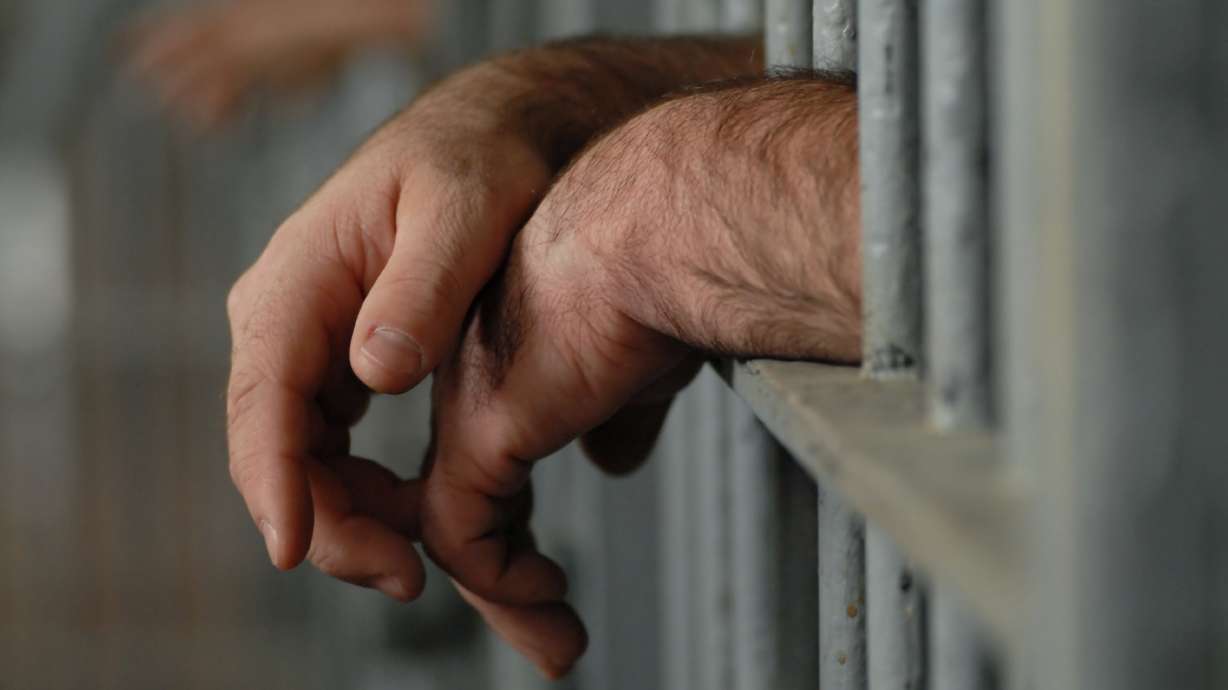Estimated read time: 4-5 minutes
This archived news story is available only for your personal, non-commercial use. Information in the story may be outdated or superseded by additional information. Reading or replaying the story in its archived form does not constitute a republication of the story.
UTAH STATE PRISON — Joseph Charles Gardner is not a typical inmate.
Since being incarcerated 27 years ago, he has done graduate work with Cornell University in ornithology, is one class away from earning a master's degree in business information systems with Utah State University, has participated in naturopathics studies with an academy in Arkansas, has assisted other inmates in earning their GEDs, and has even donated a guitar to the prison while giving music lessons. He also has not had one disciplinary write-up since being in prison.
Now, the Eagle Scout, returned LDS missionary, former schoolteacher and licensed emergency medical technician who once faced the death penalty could be released in 2020, if not earlier.
But Gardner, who argued in court that Prozac caused him to suffer "involuntary intoxication" when he shot Janice Elaine Fondren, 30, on July 22, 1990, and then dumped her body in the hot desert near St. George where it wasn't found for several days, claims he still can't remember key elements of what happened that day.
"My memory of that evening is really sketchy," he recently told Utah Board of Pardons and Parole member Carrie Cochran in a recording of his July hearing.
Fondren, originally from Moncks Corner, South Carolina, moved to St. George in 1989. She was a licensed nurse who worked at the St. George Care Center. In 1990, she was promoted to head of the nursing staff.
Fondren was best friends with Gardner's ex-wife, Nancy Snow, whom Gardner had had a tumultuous relationship with.
On July 22, 1990, Gardner went to Fondren's house. He claimed it was to talk to her about his relationship with Snow and where it stood, he said.
"My next clear memory is seeing her dead in front of me," he said.
During his July hearing, Cochran questioned Gardner about why he went to the house that day with a gun and gloves?
"I do not remember making a decision to bring (the gun) with me into the house,” he replied to the first question, and "I can only think that it was in a deliberate attempt to obscure my presence while I was there,” for the second, while also stating he couldn't remember.
Gardner told Cochran he wrapped Fondren's body in a blanket, drove her to the desert, and dumped her, though he doesn't remember any of these actions.
"I drove out there. I took her body out of the car, put it on the ground, got in the car and drove away,” he said. "My memory is leaving her rolled in the blanket."
Fondren's body, however, was found naked, and it appeared she had been sexually assaulted, though that could not be confirmed during the autopsy because of the decomposition her body suffered while lying in the 110-degree heat for three days before being discovered. Gardner claimed he did not sexually assault her.
Prosecutors and the court recommended Gardner serve the rest of his life in prison. But in an unusual move, the Utah Board of Pardons and Parole set a release date for Gardner during his first parole hearing, saying he could be paroled in July 2020. Later a request was made for Gardner to be released this year.
Cochran noted that no one who was on the board when the 2020 parole date was set was with the Board of Pardons today. And because it is so unusual by today's standards to grant parole to someone 20 years out without first re-examining them, the board now "wanted to determine the risk you pose to the community," which was the reason for July's hearing.
The board received letters prior to the hearing both in support and opposition for Gardner's early release. Many of Fondren's family members also traveled to Utah from South Carolina to speak and express their strong opposition to an early release.
John Fondren, Janice's brother, told Cochran that his family had hoped for the death penalty.
"Charles Gardner is a ruthless, cowardly beast,” he said. "He’s requesting a release from his sentence three years early. I wouldn’t give him three seconds.
"He should thank God every day he has been given the chance to live. Janice never had that chance,” he continued. "He has already lived 27 years longer than Janice. He can wait a little more."
Beth Fondren, Janice's sister, would not say Gardner's name, stating that it "goes against my principle."
"I have prayed every day that you will not allow him to get out even earlier than originally planned,” she told the board. "
Gardner responded by asking Cochran not to release him before 2020.
"What I did 27 years ago was a horrendous thing. A tragedy,” he said. "I have no way to express this sorrow, the remorse that I feel toward any of those who have been so terribly affected by what happened."
But Cochran noted that an evaluation performed in preparation for the hearing found Gardner had borderline personality disorder and that he still blames Prozac for much of what happened. Cochran said she was concerned about Gardner making excuses versus taking responsiblity for what happened and was also concerned that the report showed little change in his personality compared to his first evaluation conducted 25 years ago.
The full board ordered Garnder to complete a psychosexual evaluation and return for another hearing in September.









